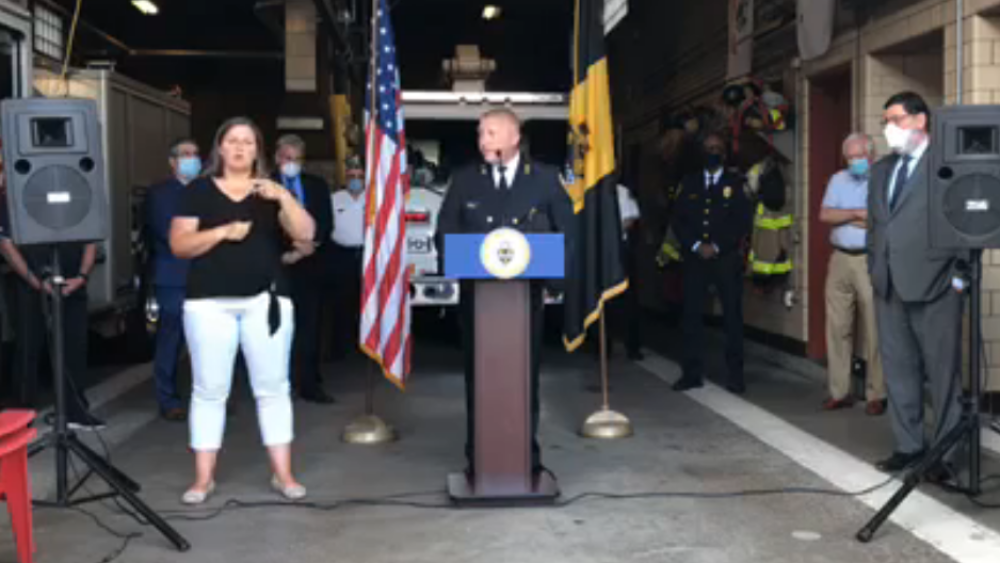Ashley Murray
Pittsburgh Post-Gazette
PITTSBURGH — City public safety officials and Mayor Bill Peduto on Wednesday showed off a new “silent” alarm system that alerts only the fire and EMS stations that are being dispatched to the call, rather than blasting the call on a radio for every station and first responder on duty to hear.
The $2.8 million, decade-in-the-making alarm system will cut down first responders’ stress levels and streamline services, officials said.
“Most of the people in the bureau would tell you [listening to radio calls] is part of the job, that’s just what we do, it doesn’t affect me,” said the city’s Bureau of Fire Lt. Dan Doyle at Firehouse 37 in Manchester. “... Your body reacts to it, even though you’re not going to be the one going out on that call, you kind of jump real quick to make sure you can go about your business. Twenty, thirty, forty years of that really packs a punch.”
Lt. Doyle spoke about research the bureau conducted with Dr. Bruce S. Rabin, University of Pittsburgh immunologist and stress-management expert, and Dr. Rabin’s championing of the “silent” alarm system.
The system, installed by Middletown, R.I.-based PURVIS, has been used in other cities, including New York City, for the past two decades.
Pittsburgh Fire Chief Darryl Jones said the alerts, which will appear on a 60-inch LED board in each fire and EMS station, will be “vital” in keeping the bureau’s four-minute response time.
A different sound and color-coding system will alert firefighters to different types of calls, whether it be a fire in a building, a car fire or a gas leak. A hard copy of the call will also print, including detailed location information.
“We want to be able to keep that timeline in order, and this system will help us to do that. Not only will it be more efficient in getting us out of the station ... we’ll get out of the station with more information,” Chief Jones said.
Mr. Peduto said that although it “may have taken a while to get the financing through the years of Act 47,” using technology to keep the public safe was always a priority.
“Those types of investments in public safety are absolutely critical, especially when we’re at a time of having national debates about funding and public safety,” Mr. Peduto said, referring to activists’ calls to reprioritize public safety funding toward community and social services for communities of color.
———
©2020 the Pittsburgh Post-Gazette












